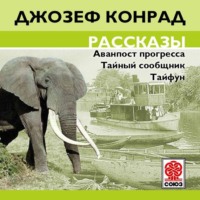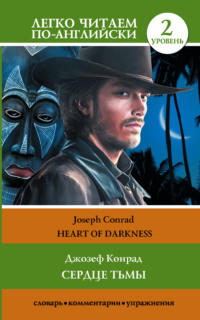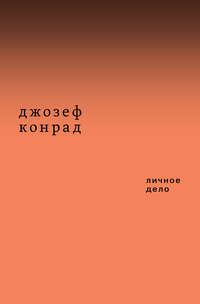 полная версия
полная версияRomance
“That poor Don Carlos!” Castro moaned lamentably. “They had the barbarity to take him out in the night, in that raw fog. He coughed and coughed; it made me faint to hear him. He could not even speak to me – his Tomas; it was pitiful. He could not speak when we got to the Casa.”
I could not really understand why I had been a second time kidnapped. Castro said that O’Brien had not been unwilling that I should reach Havana. It was Carlos that had ordered Tomas to take me out of the Breeze. He had come down in the raw morning, before the schooner had put out from behind the point, to impress very elaborate directions upon Tomas Castro; indeed, it was whilst talking to Tomas that he had burst a blood-vessel.
“He said to me: ‘Have a care now. Listen. He is my dear friend, that Señor Juan. I love him as if he were my only brother. Be very careful, Tomas Castro. Make it appear that he comes to us much against his will. Let him be dragged on board by many men. You are to understand, Tomas, that he is a youth of noble family, and that you are to be as careful of compromising him as you are of the honour of Our Lady.”!
Tomas Castro looked across at me. “You will be able to report well of me,” he said; “I did my best. If you are compromised, it was you who did it by talking to me as if you knew me.”
I remembered, then, that Tomas certainly had resented my seeming to recognize him before Cowper and Lumsden. He closed his eyes again. After a time he added:
“Vaya! After all, it is foolishness to fear being compromised. You would never believe that his Excellency Don Balthasar had led a riotous life – to look at him with his silver head. It is said he had three friars killed once in Seville, a very, very long time ago. It was dangerous in those days to come against our Mother, the Church.” He paused, and undid his shirt, laying bare an incredibly hairy chest; then slowly kicked off his shoes. “One stifles here,” he said. “Ah! in the old days – ”
Suddenly he turned to me and said, with an air of indescribable interest, as if he were gloating over an obscene idea:
“So they would hang a gentleman like you, if they caught you? What savages you English people are! – what savages! Like cannibals! You did well to make that comedy of resisting. Quel pays!… What a people… I dream of them still… The eyes; the teeth! Ah, well! in an hour we shall be in Rio. I must sleep…”
CHAPTER SEVEN
By two of the afternoon we were running into the inlet of Rio Medio. I had come on deck when Tomas Castro had started out of his doze. I wanted to see. We went round violently as I emerged, and, clinging to the side, I saw, in a whirl, tall, baked, brown hills dropping sheer down to a strip of flat land and a belt of dark-green scrub at the water’s edge; little pink squares of house-walls dropped here and there, mounting the hillside among palms, like men standing in tall grass, running back, hiding in a steep valley; silver-gray huts with ragged dun roofs, like dishevelled shocks of hair; a great pink church-face, very tall and narrow, pyramidal towards the top, and pierced for seven bells, but having only three. It looked as if it had been hidden for centuries in the folds of an ancient land, as it lay there asleep in the blighting sunlight.
When we anchored, Tomas, beside me in saturnine silence, grunted and spat into the water.
“Look here,” I said. “What is the meaning of it all? What is it? What is at the bottom?”
He shrugged his shoulders gloomily. “If your worship does not know, who should?” he said. “It is not for me to say why people should wish to come here.”
“Then take me to Carlos,” I said. “I must get this settled.”
Castro looked at me suspiciously. “You will not excite him?” he said. “I have known people die right out when they were like that.”
“Oh, I won’t excite him,” I said.
As we were rowed ashore, he began to point out the houses of the notables. Rio Medio had been one of the principal ports of the Antilles in the seventeenth century, but it had failed before the rivalry of Havana because its harbour would not take the large vessels of modern draft. Now it had no trade, no life, no anything except a bishop and a great monastery, a few retired officials from Havana. A large settlement of ragged thatched huts and clay hovels lay to the west of the cathedral. The Casa Riego was an enormous palace, with windows like loopholes, facing the shore. Don Balthasar practically owned the whole town and all the surrounding country, and, except for his age and feebleness, might have been an absolute monarch.
He had lived in Havana with great splendour, but now, in his failing years, had retired to his palace, from which he had since only twice set foot. This had only been when official ceremonies of extreme importance, such as the international execution of pirates that I had witnessed, demanded the presence of someone of his eminence and lustre. Otherwise he had lived shut up in his palace. There was nowhere in Rio Medio for him to go to.
He was said to regard his intendente O’Brien as the apple of his eye, and had used his influence to get him made one of the judges of the Marine Court. The old Don himself probably knew nothing about the pirates. The inlet had been used by buccaneers ever since the days of Columbus; but they were below his serious consideration, even if he had ever seen them, which Tomas Castro doubted.
There was no doubting the sincerity of his tone.
“Oh, you thought I was a pirate!” he muttered. “For a day – yes – to oblige a Riego, my friend – yes! Moreover, I hate that familiar of the priests, that soft-spoken Juez, intendente, intriguer – that O’Brien. A sufferer for the faith! Que picardia! Have I, too, not suffered for the faith? I am the trusted humble friend of the Riegos. But, perhaps, you think Don Balthasar is himself a pirate! He who has in his veins the blood of the Cid Campeador; whose ancestors have owned half this island since the days of Christopher himself..”
“Has he nothing whatever to do with it?” I asked. “After all, it goes on in his own town.”
“Oh, you English,” he muttered; “you are all mad! Would one of your great nobles be a pirate? Perhaps they would – God knows. Alas, alas!” he suddenly broke off, “when I think that my Carlos shall leave his bones in this ungodly place..”
I gave up questioning Tomas Castro; he was too much for me.
We entered the grim palace by the shore through an imposing archway, and mounted a broad staircase. In a lofty room, giving off the upper gallery round the central court of the Casa Riego, Carlos lay in a great bed. I stood before him, having pushed aside Tomas Castro, who had been cautiously scratching the great brilliant mahogany panels with a dirty finger-nail.
“Damnation, Carlos!” I said. “This is the third of your treacheries. What do you want with me?”
You might well have imagined he was a descendant of the Cid Campeador, only to look at him lying there without a quiver of a feature, his face stainlessly white, a little bluish in extreme lack of blood, with all the nobility of death upon it, like an alabaster effigy of an old knight in a cathedral. On the red-velvet hangings of the bed was an immense coat-of-arms, worked in silk and surrounded by a collar, with the golden sheep hanging from the ring. The shield was patched in with an immense number of quarterings – lions rampant, leopards courant, fleurs de lis, castles, eagles, hands, and arms. His eyes opened slowly, and his face assumed an easy, languorous smile of immense pleasure.
“Ah, Juan,” he said, “se bienvenido, be welcome, be welcome.”
Castro caught me roughly by the shoulder, and gazed at me with blazing, yellow eyes.
“You should not speak roughly to him,” he said. “English beast! He is dying.”
“No, I won’t speak roughly to him,” I answered. “I see.”
I did see. At first I had been suspicious; it might have been put on to mollify me. But one could not put on that blueness of tinge, that extra – nearly final – touch of the chisel to the lines round the nose, that air of restfulness that nothing any more could very much disturb. There was no doubt that Carlos was dying.
“Treacheries – no. You had to come,” he said suddenly. “I need you. I am glad, dear Juan.” He waved a thin long hand a little towards mine. “You shall not long be angry. It had to be done – you must forgive the means.”
His air was so gay, so uncomplaining, that it was hard to believe it came from him.
“You could not have acted worse if you had owed me a grudge, Carlos,” I said. “I want an explanation. But I don’t want to kill you..”
“Oh, no, oh, no,” he said; “in a minute I will tell.”
He dropped a gold ball into a silver basin that was by the bedside, and it sounded like a great bell. A nun in a sort of coif that took the lines of a buffalo’s horns glided to him with a gold cup, from which he drank, raising himself a little. Then the religious went out with Tomas Castro, who gave me a last ferocious glower from his yellow eyes. Carlos smiled.
“They try to make my going easy,” he said. “Vamos! The pillow is smooth for him who is well loved.” He shut his eyes. Suddenly he said, “Why do you, alone, hate me, John Kemp? What have I done?”
“God knows I don’t hate you, Carlos,” I answered.
“You have always mistrusted me,” he said. “And yet I am, perhaps, nearer to you than many of your countrymen, and I have always wished you well, and you have always hated and mistrusted me. From the very first you mistrusted me. Why?”
It was useless denying it; he had the extraordinary incredulity of his kind. I remembered how I had idolized him as a boy at home.
“Your brother-in-law, my cousin Rooksby, was the very first to believe that I was a pirate. I, a vulgar pirate! I, Carlos Riego! Did he not believe it – and you?” He glanced a little ironically, and lifted a thin white finger towards the great coat-of-arms. “That sort of thing,” he said, “amigo mio, does not allow one to pick pockets.” He suddenly turned a little to one side, and fixed me with his clear eyes. “My friend,” he said, “if I told you that Rooksby and your greatest Kent earls carried smugglers’ tubs, you would say I was an ignorant fool. Yet they, too, are magistrates. The only use I have ever made of these ruffians was to-day, to bring you here. It was a necessity. That O’Brien had gone on to take you when you arrived. You would never have come alive out of Havana. I was saving your life. Once there, you could never have escaped from that man.”
I saw suddenly that this might be the truth. There had been something friendly in Tomas Castro’s desire not to compromise me before the people on board the ship. Obviously he had been acting a part, with a visible contempt for the pilfering that he could not prevent. He had been sent merely to bring me to Rio Medio.
“I never disliked you,” I protested. “I do not understand what you mean. All I know is, that you have used me ill – outrageously ill. You have saved my life now, you say. That may be true; but why did you ever make me meet with that man O’Brien?”
“And even for that you should not hate me,” he said, shaking his head on the silk pillows. “I never wished you anything but well, Juan, because you were honest and young, of noble blood, good to look upon; you had done me and my friend good service, to your own peril, when my own cousin had deserted me. And I loved you for the sake of another. I loved your sister. We have a proverb: ‘A man is always good to the eyes in which the sister hath found favour.’”
I looked at him in amazement. “You loved Veronica!” I said. “But Veronica is nothing at all. There was the Señorita.”
He smiled wearily. “Ah, the Señorita; she is very well; a man could love her, too. But we do not command love, my friend.”
I interrupted him. “I want to know why you brought me here. Why did you ask me to come here when we were on board the Thames?”
He answered sadly, “Ah, then! Because I loved your sister, and you reminded me always of her. But that is all over now – done with for good… I have to address myself to dying as it becomes one of my race to die.” He smiled at me. “One must die in peace to die like a Christian. Life has treated me rather scurvily, only the gentleman must not repine like a poor man of low birth. I would like to do a good turn to the friend who is the brother of his sister, to the girl-cousin whom I do not love with love, but whom I understand with affection – to the great inheritance that is not for my wasted hands.”
I looked out of the open door of the room. There was the absolutely quiet inner court of the palace, a colonnade of tall square pillars, in the centre the little thread of a fountain. Round the fountain were tangled bushes of flowers – enormous geraniums, enormous hollyhocks, a riot of orange marigolds.
“How like our flowers at home!” I said mechanically.
“I brought the seeds from there – from your sister’s garden,” he said.
I felt horribly hipped. “But all these things tell me nothing,” I said, with an attempt towards briskness.
“I have to husband my voice.” He closed his eyes.
There is no saying that I did not believe him; I did, every word. I had simply been influenced by Rooks-by’s suspicions. I had made an ass of myself over that business on board the Thames. The passage of Carles and his faithful Tomas had been arranged for by some agent of O’Brien in London, who was in communication with Ramon and Rio Medio. The same man had engaged Nichols, that Nova Scotian mate, an unscrupulous sailor, for O’Brien’s service. He was to leave the ship in Kingston, and report himself to Ramon, who furnished him with the means to go to Cuba. That man, seeing me intimate with two persons going to Rio Medio, had got it into his head that I was going there, too. And, very naturally, he did not want an Englishman for a witness of his doings.
But Rooksby’s behaviour, his veiled accusations, his innuendoes against Carlos, had influenced me more than anything else. I remembered a hundred little things now that I knew that Carlos loved Veronica. I understood Rooksby’s jealous impatience, Veronica’s friendly glances at Carlos, the fact that Rooksby had proposed to Veronica on the very day that Carlos had come again into the neighbourhood with the runners after him. I saw very well that there was no more connection between the Casa Riego and the rascality of Rio Medio than there was between Ralph himself and old drunken Rangsley on Hythe beach. There was less, perhaps.
“Ah, you have had a sad life, my Carlos,” I said, after a long time.
He opened his eyes, and smiled his brave smile. “Ah, as to that,” he said, “one kept on. One has to husband one’s voice, though, and not waste it over lamentations. I have to tell you – ah, yes…” He paused and fixed his eyes upon me. “Figure to yourself that this house, this town, an immense part of this island, much even yet in Castile itself, much gold, many slaves, a great name – a very great name – are what I shall leave behind me. Now think that there is a very noble old man, one who has been very great in the world, who shall die very soon; then all these things shall go to a young girl. That old man is very old, is a little foolish with age; that young girl knows very little of the world, and is very passionate, very proud, very helpless.
“Add, now, to that a great menace – a very dangerous, crafty, subtle personage, who has the ear of that old man; whose aim it is to become the possessor of that young girl and of that vast wealth. The old man is much subject to the other. Old men are like that, especially the very great. They have many things to think of; it is necessary that they rely on somebody. I am, in fact, speaking of my uncle and the man called O’Brien. You have seen him.” Carlos spoke in a voice hardly above a whisper, but he stuck to his task with indomitable courage. “If I die and leave him here, he will have my uncle to himself. He is a terrible man. Where would all that great fortune go? For the re-establishing of the true faith in Ireland? Quien sabe? Into the hands of O’Brien, at any rate. And the daughter, too – a young girl – she would be in the hands of O’Brien, too. If I could expect to live, it might be different. That is the greatest distress of all.” He swallowed painfully, and put his frail hand on to the white ruffle at his neck. “I was in great trouble to find how to thwart this O’Brien. My uncle went to Kingston because he was persuaded it was his place to see that the execution of those unhappy men was conducted with due humanity. O’Brien came with us as his secretary. I was in the greatest horror of mind. I prayed for guidance. Then my eyes fell upon you, who were pressed against our very carriage wheels. It was like an answer to my prayers.” Carlos suddenly reached out and caught my hand.
I thought he was wandering, and I was immensely sorry for him. He looked at me so wistfully with his immense eyes. He continued to press my hand.
“But when I saw you,” he went on, after a time, “it had come into my head, ‘That is the man who is sent in answer to my prayers.’ I knew it, I say. If you could have my cousin and my lands, I thought, it would be like my having your sister – not quite, but good enough for a man who is to die in a short while, and leave no trace but a marble tomb. Ah, one desires very much to leave a mark under God’s blessed sun, and to be able to know a little how things will go after one is dead… I arranged the matter very quickly in my mind. There was the difficulty of O’Brien. If I had said, ‘Here is the man who is to marry my cousin,’ he would have had you or me murdered; he would stop at nothing. So I said to him very quietly, ‘Look here, Señor Secretary, that is the man you have need of to replace your Nichols – a devil to fight; but I think he will not consent without a little persuasion. Decoy him, then, to Ramon’s, and do your persuading.’ O’Brien was very glad, because he thought that at last I was coming to take an interest in his schemes, and because it was bringing humiliation to an Englishman. And Sera-phina was glad, because I had often spoken of you with enthusiasm, as very fearless and very honourable. Then I made that man Ramon decoy you, thinking that the matter would be left to me.”
That was what Carlos had expected. But O’Brien, talking with Ramon, had heard me described as an extreme Separationist so positively that he had thought it safe to open himself fully. He must have counted, also, on my youth, my stupidity, or my want of principle. Finding out his mistake, he very soon made up his mind how to act; and Carlos, fearing that worse might befall me, had let him.
But when the young girl had helped me to escape, Carlos, who understood fully the very great risks I ran in going to Havana in the ship that picked me up, had made use of O’Brien’s own picaroons to save me from him. That was the story.
Towards the end his breath came fast and short; there was a flush on his face; his eyes gazed imploringly at me.
“You will stay here, now, till I die, and then – I want you to protect. – ” He fell back on the pillows.
PART THIRD – CASA RIEGO
CHAPTER ONE
All this is in my mind now, softened by distance, by the tenderness of things remembered – the wonderful dawn of life, with all the mystery and promise of the young day breaking amongst heavy thunder-clouds. At the time I was overwhelmed – I can’t express it otherwise. I felt like a man thrown out to sink or swim, trying to keep his head above water. Of course, I did not suspect Carlos now; I was ashamed of ever having done so. I had long ago forgiven him his methods. “In a great need, you must,” he had said, looking at me anxiously, “recur to desperate remedies.” And he was going to die. I had made no answer, and only hung my head – not in resentment, but in doubt of my strength to bear the burden of the great trust that this man whom I loved for his gayety, his recklessness and romance, was going to leave in my inexperienced hands.
He had talked till, at last exhausted, he sank back gently on the pillows of the enormous bed emblazoned like a monument. I went out, following a gray-headed negro, and the nun glided in, and stood at the foot with her white hands folded patiently.
“Señor!” I heard her mutter reproachfully to the invalid.
“Do not scold a poor sinner, Dona Maria,” he addressed her feebly, with valiant jocularity. “The days are not many now.”
The strangeness and tremendousness of what was happening came over me very strongly whilst, in a large chamber with barred loopholes, I was throwing off the rags in which I had entered this house. The night had come already, and I was putting on some of Carlos’ clothes by the many flames of candles burning in a tall bronze candelabrum, whose three legs figured the paws of a lion. And never, since I had gone on the road to wait for the smugglers, and been choked by the Bow Street runners, had I remembered so well the house in which I was born. It was as if, till then, I had never felt the need to look back. But now, like something romantic and glamorous, there came before me Veronica’s sweet, dim face, my mother’s severe and resolute countenance. I had need of all her resoluteness now. And I remembered the figure of my father in the big chair by the ingle, powerless and lost in his search for rhymes. He might have understood the romance of my situation.
It grew upon me as I thought. Don Balthasar, I understood, was apprised of my arrival. As in a dream, I followed the old negro, who had returned to the door of my room. It grew upon me in the silence of this colonnaded court. We walked along the upper gallery; his cane tapped before me on the tessellated pavement; below, the water splashed in the marble basins; glass lanthorns hung glimmering between the pillars and, in wrought silver frames, lighted the broad white staircase. Under the inner curve of the vaulted gateway a black-faced man on guard, with a bell-mouthed gun, rose from a stool at our passing. I thought I saw Castro’s peaked hat and large cloak flit in the gloom into which fell the light from the small doorway of a sort of guardroom near the closed gate. We continued along the arcaded walk; a double curtain was drawn to right and left before me, while my guide stepped aside.
In a vast white apartment three black figures stood about a central glitter of crystal and silver. At once the aged, slightly mechanical voice of Don Balthasar rose thinly, putting himself and his house at my disposition.
The formality of movements, of voices, governed and checked the unbounded emotions of my wonder. The two ladies sank, with a rustle of starch and stiff silks, in answer to my profound bow. I had just enough control over myself to accomplish that, but mentally I was out of breath; and when I felt the slight, trembling touch of Don Balthasar’s hand resting on my inclined head, it was as if I had suddenly become aware for a moment of the earth’s motion. The hand was gone; his face was averted, and a corpulent priest, all straight and black below his rosy round face, had stepped forward to say a Latin grace in solemn tones that wheezed a little. As soon as he had done he withdrew with a circular bow to the ladies, to Don Balthasar, who inclined his silvery head. His lifeless voice propounded:
“Our excellent Father Antonio, in his devotion, dines by the bedside of our beloved Carlos.” He sighed. The heavy carvings of his chair rose upright at his back; he sat with his head leaning forward over his silver plate. A heavy silence fell. Death hovered over that table – and also, as it were, the breath of past ages. The multitude of lights, the polished floor of costly wood, the bare whiteness of walls wainscotted with marble, the vastness of the room, the imposing forms of furniture, carved heavily in ebony, impressed me with a sense of secular and austere magnificence. For centuries there had always been a Riego living in this fortress-like palace, ruling this portion of the New World with the whole majesty of his race. And I thought of the long, loop-holed, buttressed walls that this abode of noble adventurers presented foursquare to the night outside, standing there by the seashore like a tomb of warlike glories. They built their houses thus, centuries ago, when the bands of buccaneers, indomitable and atrocious, had haunted their conquest with a reminder of mortality and weakness.









